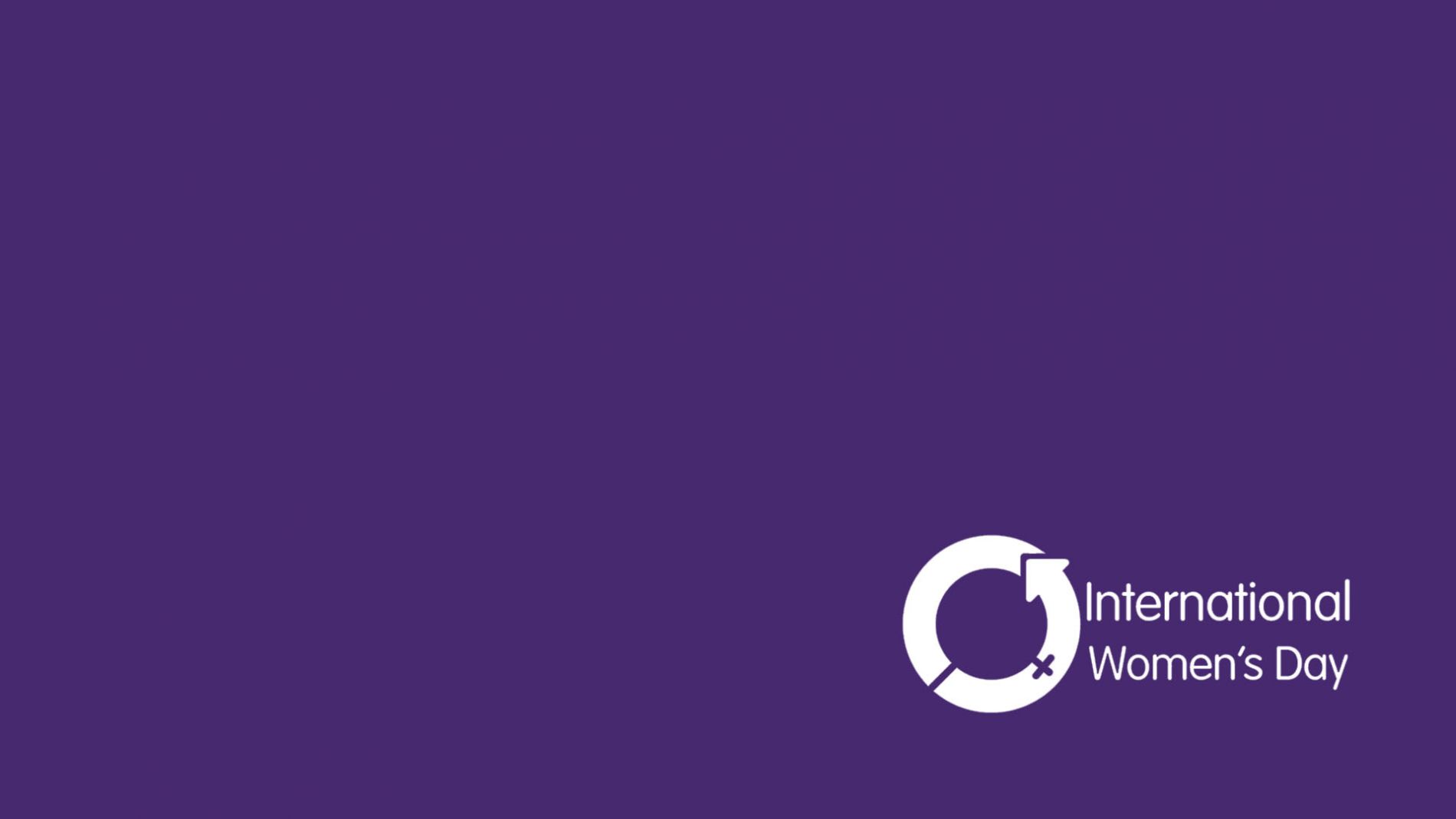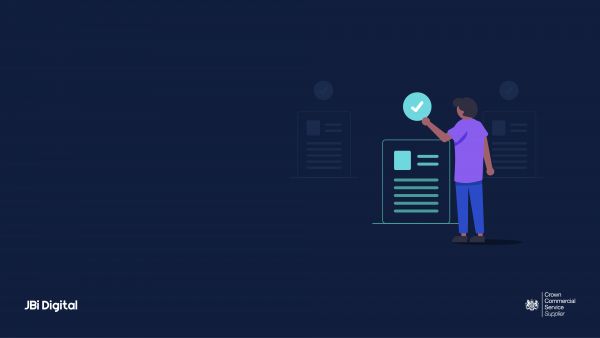Welcome to JBi Digital’s group interview for International Women’s Day!
I’m joined by five members of JBi’s project management team, who have kindly agreed to talk through their experiences as women in digital.
We’ll be focusing on three main topic areas: whether or not they have faced any barriers or discrimination as women in digital; how they feel the industry could improve in its accommodation of women; and who their digital and technical heroines are.
As the only man in the room, I am simply here to ask the questions and post the responses! So let’s get going – the interviewees are as follows…
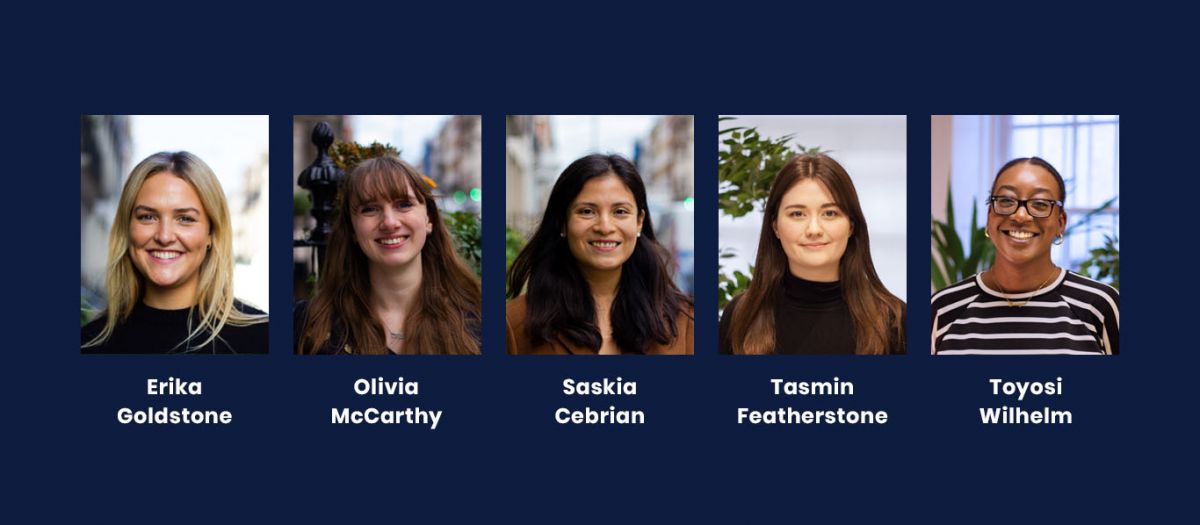
Have any of you faced any barriers or discrimination as women in digital?
Saskia: I started in South America, where most of the project managers were men. In one of my roles, I was the only woman in a team of eight. The implication in that situation is that, in order to be a good project manager, you need to be strong and masculine. I think that’s ridiculous.
Oscar: Do you feel like there is a cultural difference now that you work in England?
Saskia: It depends, really. Working at JBi is different, but whenever I go to events or engage with the wider digital community, the trend is that the industry is mostly oriented around men. When I talk to other women in the industry who have similar roles to me, we tend to agree that one of our main challenges is breaking the glass ceiling of being a woman working for men.
Toyosi: I find it hard to identify sexism sometimes. Maybe I just choose not to see it.
“I find it hard to identify sexism sometimes. Maybe I just choose not to see it.”
Saskia: Same here.
Toyosi: It almost becomes irrelevant to me. It’s their issue, not mine. They have those thoughts and that opinion of me, and it’s my job to prove them wrong.
Tasmin: I always worry about how I come across when I’m managing men, especially when they’re older and have more industry experience.
Erika: 100%. Do you come in and make jokes? Do you come in seriously? You have to maintain a level of professionalism and authority, but at the same time you don’t want people to see you as strict.
Toyosi: I don’t know if that’s necessarily a gender thing, though. Whether I’m dealing with a man or a woman, I still want them to like me first. I don’t want our developers to be doing something for me out of fear – I want them to respect me but I also want them to like me.
Olivia: That definitely extends beyond the work environment. In everyday life, a woman who is serious and direct is very often seen as a b****, whereas a man with the same characteristics is seen as strong and decisive.
Saskia: Oscar can’t use that word when he types this up!
Oscar: I’ll censor it!
Tasmin: I think one of the main barriers I have faced is that, in some of my previous roles, women would be asked to do certain things which men would never be asked to do. We had a bake sale and all of the women were asked to bake cakes first. Junior female staff were always asked to take meeting notes before junior male staff. Things like that really hit a nerve with me – it was so blatant that we were being given those tasks because we were female.
Olivia: I think it’s important to clarify that no one is objecting to pulling their weight in that kind of situation. There’s a real build up of frustration when you’re being asked to do things like that all the time, and the reasons for it are so transparent.
“Don’t deny that it’s even happening – I’m not grabbing a pitchfork just yet!“
Tasmin: I find that, if you call out behaviour like that, it is so rare that the person doing it will actually acknowledge that it was sexist. That is such an important step to take. Don’t deny that it’s even happening – I’m not grabbing a pitchfork just yet!
Erika: It can be so blatant, too. The guys at one of my previous agencies used to make constant jokes in the office about developers who were taking maternity and paternity leave. I was one of two girls on the team, and the other girl was pregnant! I could see how it affected her. I used to call them out on it all the time, but they never actually stopped. It drove me mad – it was one of the main reasons I left.
Olivia: No one is asking for special treatment, you just want to be taken vaguely seriously. That’s why it’s so hard to deal with things that are delivered as ‘jokes’. You don’t want to be seen as a drag.
Saskia: That’s so true.
Oscar: It’s funny, I can relate to some of the situations you’ve described; I’ve had to manage developers in the past who were predominantly older and more experienced than me, which I’ve been very aware of in my comms with them. But there’s another level to that for women in the same position, because you also have to deal with the fact that the vast majority of developers are not only older, but also male. I’ve never thought about that before.
Toyosi: Exactly. It’s the expectation that you worry they will have of you. And that’s not just in digital – that’s how it is for women in society in general. You don’t want to be seen as too this, too that, too soft, not strong enough. But in the end, I am who I am, and I need to stay true to that.
Tasmin: I’ve been in meetings in the past where senior men have turned to me and said, “Well, what does the lady think?”
“If you call it out, you’re the problem.”
Oscar: I’ve seen that happen!
Tasmin: It’s awful! I would never turn to a male co-worker and say, “What does the man think?”
Olivia: There’s so much mental admin for women in those kinds of situations. What is the appropriate way to act and react?
Tasmin: If you say something about it, you’re the b****.
Toyosi: That’s the reality of it. If you call it out, you’re the problem. So it’s often better to just stay quiet.
Oscar: Nobody should be made to feel like that at work. Which sets us up for the next question…
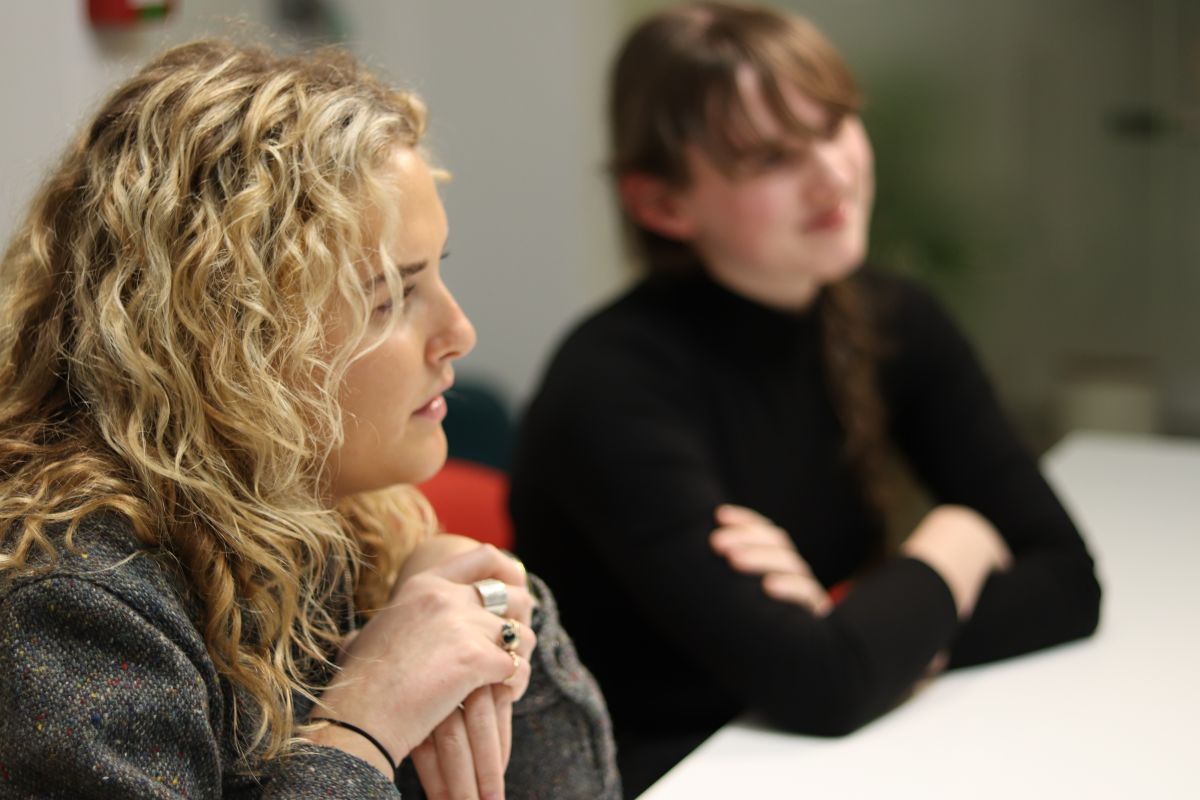
How do you feel the industry could improve its accommodation of women?
Olivia: I have a couple of points here – I prepped for this question!
Oscar: Love it!
Olivia: First is equal pay for equal work. There are roles which are conventionally male and there are roles which are conventionally female. To my mind, there is quite clear evidence that the pay scales for those roles don’t match, even though the work involved is often of equal importance.
“When you have two people in the same role who are being paid at different rates, that’s a problem.”
All: Yes.
Olivia: My second argument is for salary transparency, which I don’t think is always appropriate but can make such a difference. When you have two people in the same role who are being paid at different rates, that’s a problem. Gender can very often have a say in that.
Tasmin: Absolutely.
Olivia: I know you’re the interviewer Oscar, but could I ask a question?
Oscar: Go for it!
Olivia: Saskia, you come from a much more technical background than the rest of us. Do you feel that the technical world is more hostile to women?
Saskia: I think I have been lucky in my career – I’ve always had managers who were clear on what was expected of me and who helped me to progress. Having said that, I’ve definitely experienced a lot of the same things that you have all talked about today.
Oscar: Like what?
Saskia: In a previous job, I was managing a junior project manager and I started to notice that she was being asked to do loads of admin jobs ahead of the other junior PMs. She was writing cards for people, collecting post, even making cupcakes every week! I said to her, “It’s fine if you want to do these things, but it’s not in your job description. Your job is to do a, b, c and d as a project manager. Nobody is going to fire you for not bringing cupcakes in every week, but somebody will fire you if you’re not doing your job!” And she stopped. I think she just needed to be told.
Tasmin: That makes such a difference.
Saskia: After that, whenever she was asked to do a time consuming admin task, she was able to say, “No, because Saskia has told me to do a, b, c and d. If you want me to do this for you, ask Saskia!”
Toyosi: I think on a separate note, more needs to be done to welcome and support women in tech and digital from a young age. In the long term, that’s going to make such a difference. Especially in development. I would love to see more female developers – I don’t think I’ve ever met one!
Tasmin: I’ve met one!
Erika: Me too – just the one!
Toyosi: Educating women from a young age and letting them know that they have that option will make such a difference. You never know, if we’d had that growing up, some of us might have ended up going into development!
Oscar: And you like to think that’s already started – coding is being taught at a primary level now, so girls and boys are going to grow up with similar levels of basic technical knowledge.
“Recruiters need to be expanding their networks to ensure that women are being given the opportunity in the first place.”
Toyosi: For sure! The more we can do in that vein, the better.
Erika: Another massive part of it is hiring process and policy. One of my previous companies went through a phase of pretty much exclusively hiring men, and the excuse was always, “It’s so difficult to find good project managers who are female.” Really?! Just look around this room!
Olivia: It’s not just to do with who you hire at the point of interview – recruiters need to be expanding their networks to ensure that women are being given the opportunity in the first place. There are so many ways you can find the right people.
Oscar: I think we’re going to have to start wrapping up now, so let’s move on to the final question…
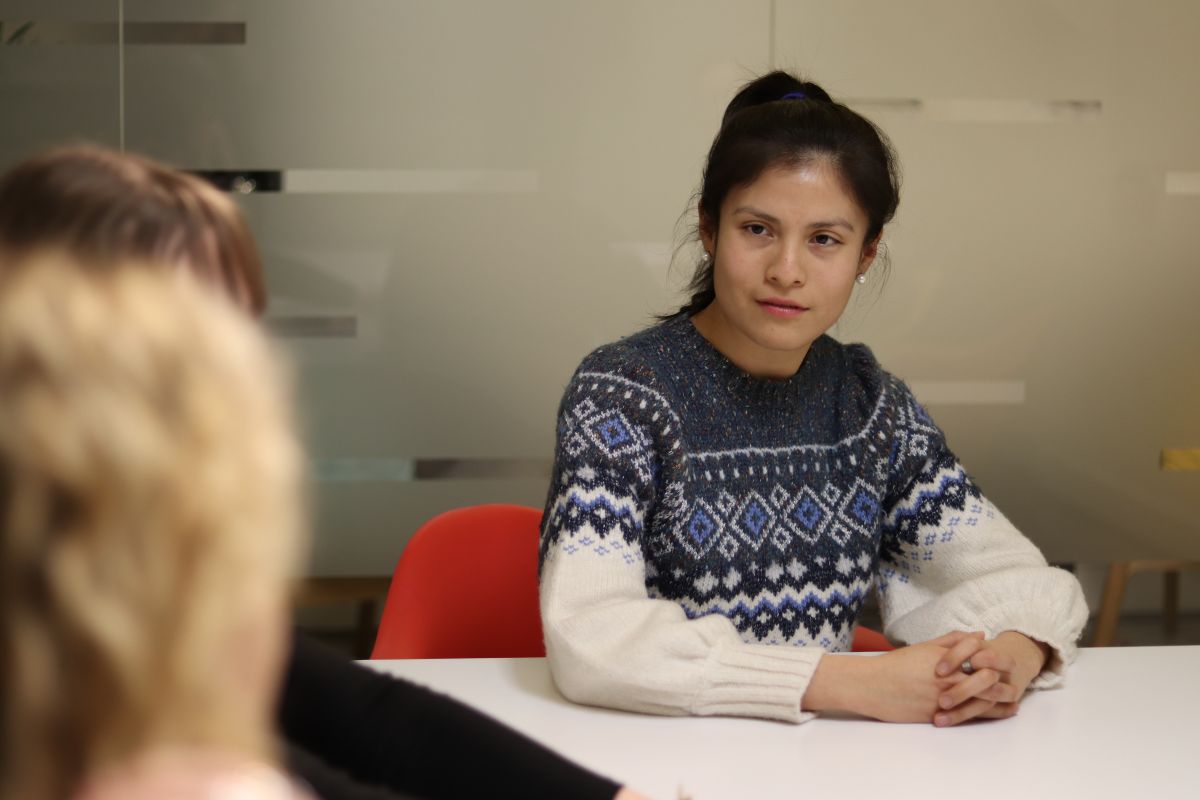
Who are your female heroes in the industry?
Oscar: I thought this would be a fun question to end on! Does anybody come to mind for any of you?
Erika: My director at Moonpig, Claire Durney, was an absolute boss. The whole commercial team called her mum! She had so much respect from everyone in her team and looked after everybody so well. Even to this day, I give her a ring whenever I change jobs. She’s brilliant.
Olivia: It gives you so much more confidence when you have a strong female role model like that. My manager in publishing was similar – she had so much experience, and I was always so sure that she was in my corner. That makes such a difference.
“It gives you so much more confidence when you have a strong, female role model.”
Erika: 100%.
Saskia: When I was studying at university, I met a girl who absolutely loved software engineering. She’s done really well for herself since and has set up her own company. She recently created a program for women who don’t have the resources available to study and learn coding. It gives them the tools to do so, helping them to expand their careers in engineering and tech.
Tasmin: That’s amazing.
Saskia: So even though she has her own career and lots of opportunities, she has found a way to give back to the industry and help young women in tech. People like her make it so much easier for women to enter the industry.
Oscar: What’s her name?
Toyosi: I’ll have to look her up later!
Saskia: Another female role model for me is Lyndsey Scott – she’s a model, actress and software developer! I think she’s such an inspirational figure for young girls to look up to.
Oscar: Brilliant. We’re out of time, so let’s wrap it up there. Thank you so much everyone!
If you have a project or opportunity that you would like to discuss with our team, please don’t hesitate to get in touch by emailing hello@jbidigital.co.uk or calling 0207 043 2510.

